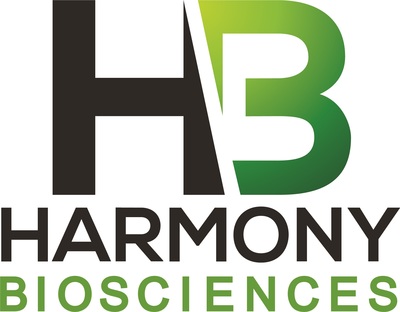Harmony Biosciences, LLC (“Harmony”), a private pharmaceutical company dedicated to developing and commercializing novel treatment options for people living with rare diseases, announced today that it uploaded two posters with data on the efficacy and safety of WAKIX® (pitolisant) to the American Academy of Neurology (AAN) Scie
|
PLYMOUTH MEETING, Pa., June 2, 2020 /PRNewswire/ --Harmony Biosciences, LLC ("Harmony"), a private pharmaceutical company dedicated to developing and commercializing novel treatment options for people living with rare diseases, announced today that it uploaded two posters with data on the efficacy and safety of WAKIX® (pitolisant) to the American Academy of Neurology (AAN) Science Highlights virtual platform. The abstracts of these posters are also included in an online supplement of the journal Neurology in the "Sleep Medicine: Focus on Therapies 2" poster session. "We are pleased to have an opportunity to share these important data via this innovative approach with the broader neurology community," said Harmony's Chief Medical Officer, Jeffrey Dayno, M.D. "These data on the efficacy and safety of WAKIX strengthen the body of scientific evidence that supports WAKIX as a potential treatment option for adult patients living with narcolepsy." The data posted by Harmony on AAN's Science Highlights virtual platform include:
The AAN Science Highlights virtual platform was launched in lieu of the organization's annual meeting, which was cancelled due to the coronavirus pandemic. The platform is now available to both AAN members and nonmembers at no cost. About WAKIX (pitolisant) Tablets Important Safety Information WAKIX prolongs the QT interval; avoid use of WAKIX in patients with known QT prolongation or in combination with other drugs known to prolong the QT interval. Avoid use in patients with a history of cardiac arrhythmias, as well as other circumstances that may increase the risk of the occurrence of torsade de pointes or sudden death, including symptomatic bradycardia, hypokalemia or hypomagnesemia, and the presence of congenital prolongation of the QT interval. The risk of QT prolongation may be greater in patients with hepatic or renal impairment due to higher concentrations of pitolisant; monitor these patients for increased QTc. Dosage modification is recommended in patients with moderate hepatic impairment and moderate or severe renal impairment. WAKIX is not recommended in patients with end-stage renal disease (ESRD). In the placebo-controlled clinical trials conducted in patients with narcolepsy with or without cataplexy, the most common adverse reactions (≥5% and twice placebo) for WAKIX were insomnia (6%), nausea (6%), and anxiety (5%). Other adverse reactions that occurred at ≥2% and more frequently than in patients treated with placebo included headache, upper respiratory infection, musculoskeletal pain, heart rate increased, hallucinations, irritability, abdominal pain, sleep disturbance, decreased appetite, cataplexy, dry mouth, and rash. Please see the Full Prescribing Information for WAKIX for more information. About Narcolepsy About Harmony Biosciences, LLC Harmony Biosciences, LLC Media Contact: Nancy Leone
SOURCE Harmony Biosciences |





